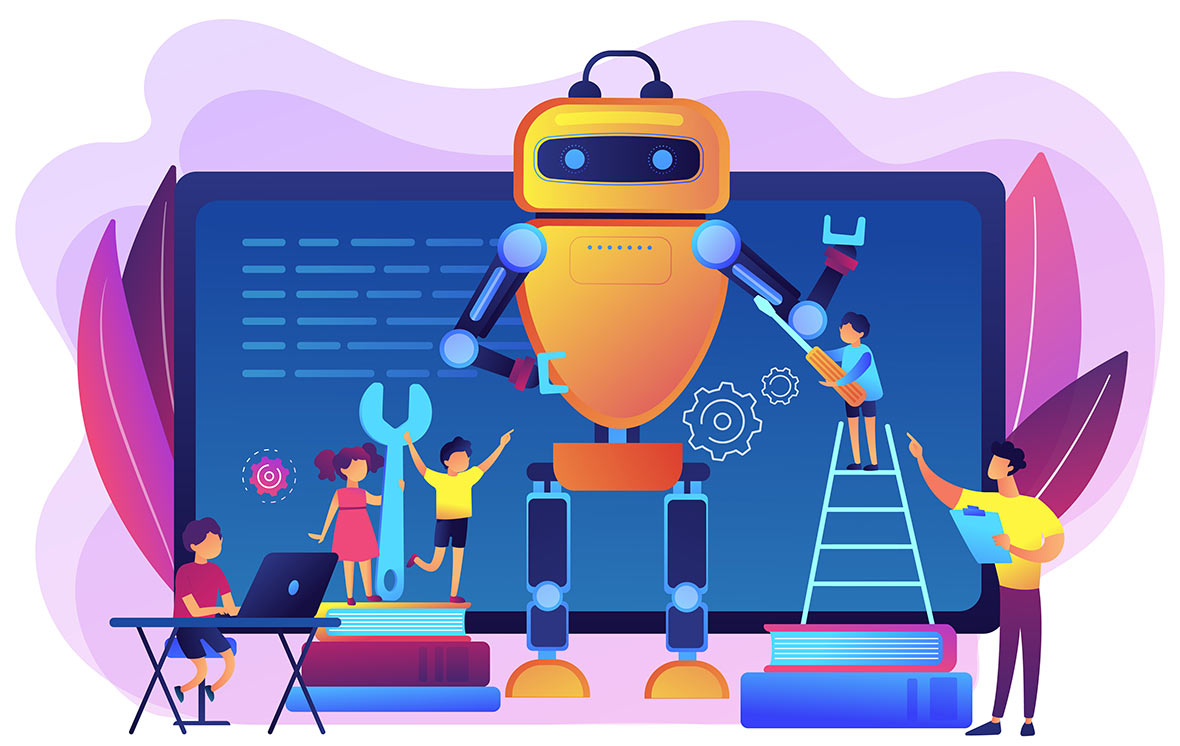Introduction
In recent years, the integration of artificial intelligence (AI) into various facets of our lives has become increasingly prevalent. One area where AI has made significant strides is in the field of education, particularly in the realm of online learning. As technology continues to evolve, AI is proving to be a transformative force in shaping the future of education by enhancing the learning experience, personalizing education, and providing valuable insights for both educators and students.
- Personalized Learning Paths
One of the key contributions of AI in online learning is the ability to tailor educational experiences to the unique needs of individual learners. Traditional one-size-fits-all approaches are being replaced by AI-powered systems that analyze each student’s strengths, weaknesses, learning style, and pace. This personalized approach allows students to progress at their own speed, ensuring a more effective and enjoyable learning journey.
Adaptive learning platforms use AI algorithms to continually assess a student’s performance and adjust the curriculum accordingly. This means that students who grasp concepts quickly can move ahead, while those who need additional support receive targeted resources and exercises. As a result, the overall learning experience becomes more efficient and tailored to the specific needs of each student.
- Intelligent Tutoring Systems
AI-driven intelligent tutoring systems provide students with real-time feedback and support. These systems can simulate one-on-one interactions with a human tutor by assessing students’ responses, identifying misconceptions, and offering guidance on how to improve. This not only helps in reinforcing concepts but also builds students’ confidence and motivation.
Additionally, intelligent tutoring systems can track students’ progress over time, allowing educators to identify areas of strength and weakness. By leveraging this data, instructors can modify their teaching strategies and materials to address specific challenges, ultimately enhancing the overall effectiveness of the educational process.
- Automating Administrative Tasks
AI is also streamlining administrative tasks in online education, allowing educators to focus more on teaching and interacting with students. Tasks such as grading assessments, tracking attendance, and managing course logistics can be automated, saving valuable time for both teachers and students. This increased efficiency contributes to a more seamless and responsive learning environment.
Automated systems can provide immediate feedback on assignments, reducing the time it takes for students to receive input on their work. This quick turnaround fosters a more dynamic learning experience, enabling students to make timely corrections and improvements based on feedback.
- Enhanced Resource Accessibility
AI is breaking down barriers to education by making learning resources more accessible to a broader audience. Through natural language processing and machine learning algorithms, AI can assist in the creation of interactive and adaptive content that caters to diverse learning styles. Additionally, AI-powered translation tools facilitate language accessibility, making educational materials available to non-native speakers.
Virtual assistants and chatbots powered by AI are also becoming valuable tools for student support. These systems can provide instant responses to common queries, guide students through coursework, and offer assistance outside traditional working hours. By enhancing accessibility and support, AI is helping to create a more inclusive online learning environment.
Conclusion
As AI continues to advance, its impact on online learning will undoubtedly grow. From personalized learning paths to intelligent tutoring systems and automated administrative tasks, AI is revolutionizing the way we approach education. The integration of these technologies not only enhances the learning experience for students but also empowers educators with valuable insights and tools to create more effective and engaging online learning environments. As we move forward, the collaboration between humans and AI in education promises to shape a more adaptive, personalized, and accessible future for learners around the world.
